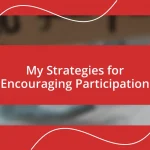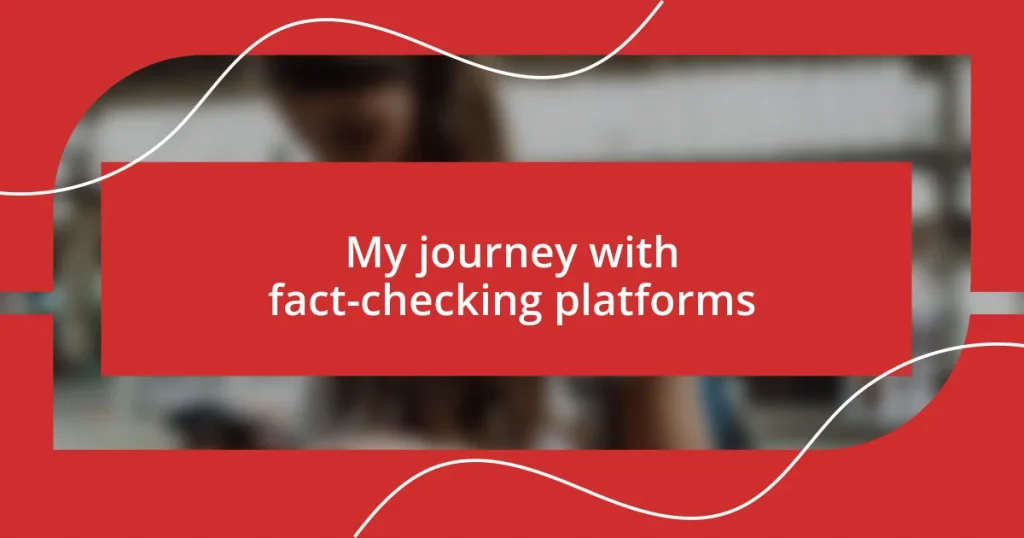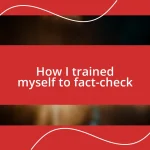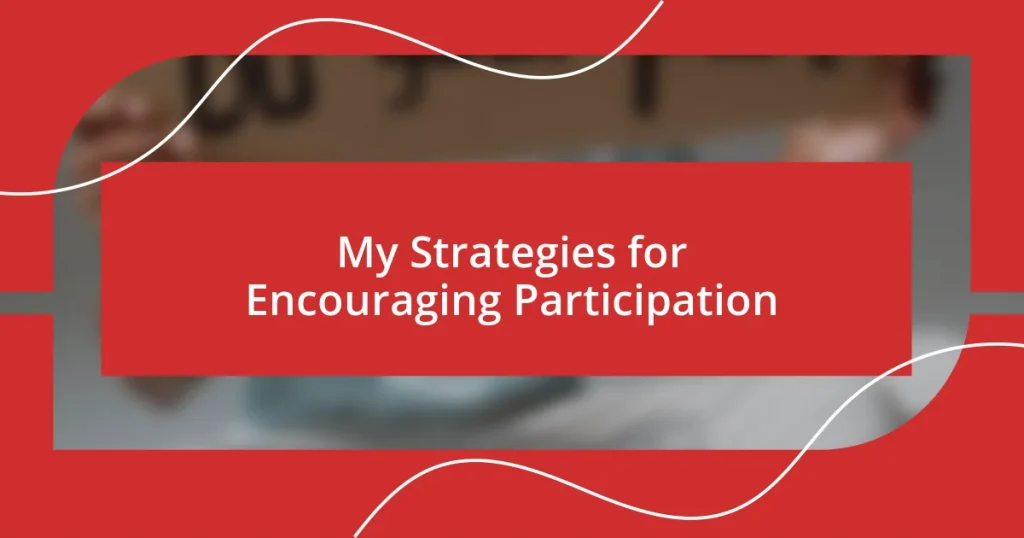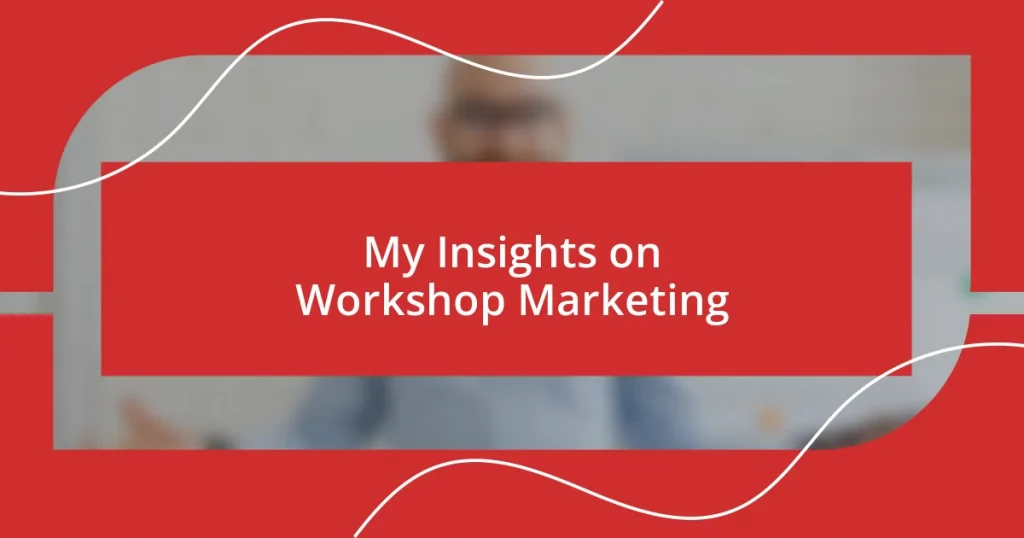Key takeaways:
- Fact-checking platforms are vital for combating misinformation, promoting accountability, and restoring trust in the information we share and consume.
- Popular platforms like Snopes, FactCheck.org, and PolitiFact offer unique approaches to verifying claims, enhancing public understanding of truth and fostering informed discussions.
- Engaging with fact-checking encourages critical thinking and deeper analysis of information, transforming the way individuals approach news consumption and discussions on societal issues.
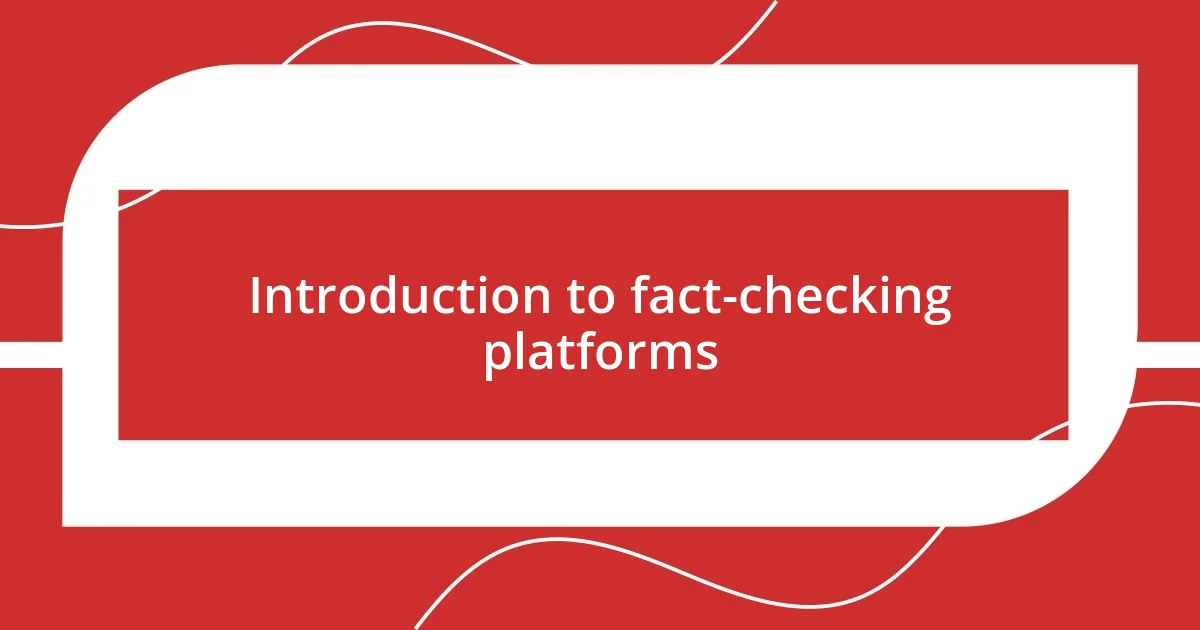
Introduction to fact-checking platforms
Fact-checking platforms have emerged as essential tools in our digital age, acting as a crucial line of defense against misinformation. I remember a time when a viral news story sparked a heated debate among my friends, leaving us all confused about what was true. In moments like these, a reliable fact-checking platform can bring clarity and restore faith in the information we consume.
These platforms sift through the noise, verifying claims from various sources and delivering clear, evidence-based conclusions. I often find myself wondering how many people truly understand the depth of research behind these checks. It’s not just about saying “yes” or “no”; it involves meticulous work to ensure that the information presented to the public is accurate and trustworthy.
Moreover, the emotional weight of misinformation can be heavy. Each time a falsehood spreads unchecked, it can lead to real-world consequences. By using fact-checking platforms, I’ve developed a sense of responsibility for the information I share, knowing that every link I post has the potential to shape someone’s understanding of reality. Isn’t it empowering to know we can hold ourselves and others accountable, one fact at a time?
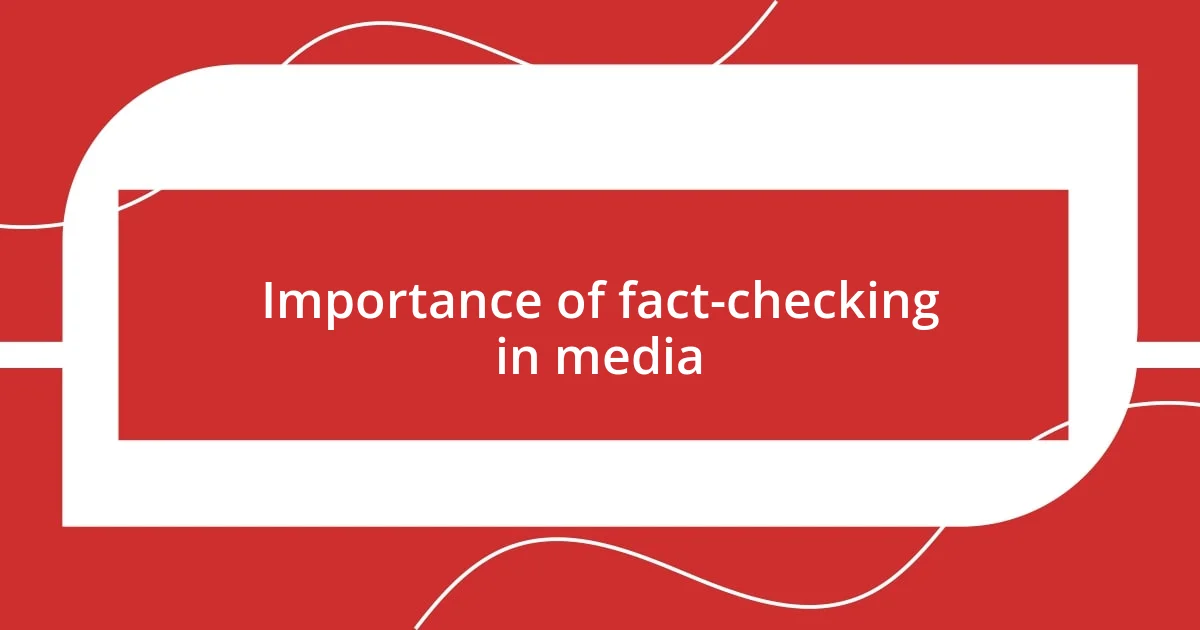
Importance of fact-checking in media
Fact-checking plays a pivotal role in maintaining the integrity of media. From my experience, it’s not just about verifying facts; it’s also about instilling trust in journalism. I recall a moment when a misleading headline led me to question everything I thought I knew about a current event. It became clear that relying on accurate information is vital, not just for informed decision-making, but for forming a well-rounded perspective on societal issues.
When misinformation permeates the media landscape, it can have dire implications. I once shared a sensational article on social media, only to realize later that it was based on distorted facts. This misstep illuminated the power I wield in sharing information. Now, I approach every piece I read through a critical lens, knowing that I have a responsibility to my community to ensure the information I share is fact-checked and credible.
Moreover, fact-checking helps to foster a culture of accountability. I remember attending a community meeting where incorrect statistics were shared. After someone fact-checked the claims in real-time, it sparked a productive dialogue about the need for accurate data. This experience reinforced my belief that when media outlets prioritize fact-checking, they empower their audiences to engage more thoughtfully with the news around them.
| Benefits of Fact-Checking | Potential Risks of Lack of Fact-Checking |
|---|---|
| Increases trust in media sources | Promotes the spread of misinformation |
| Encourages informed decision-making | Leads to public confusion |
| Fosters accountability in journalism | Harms reputations and communities |
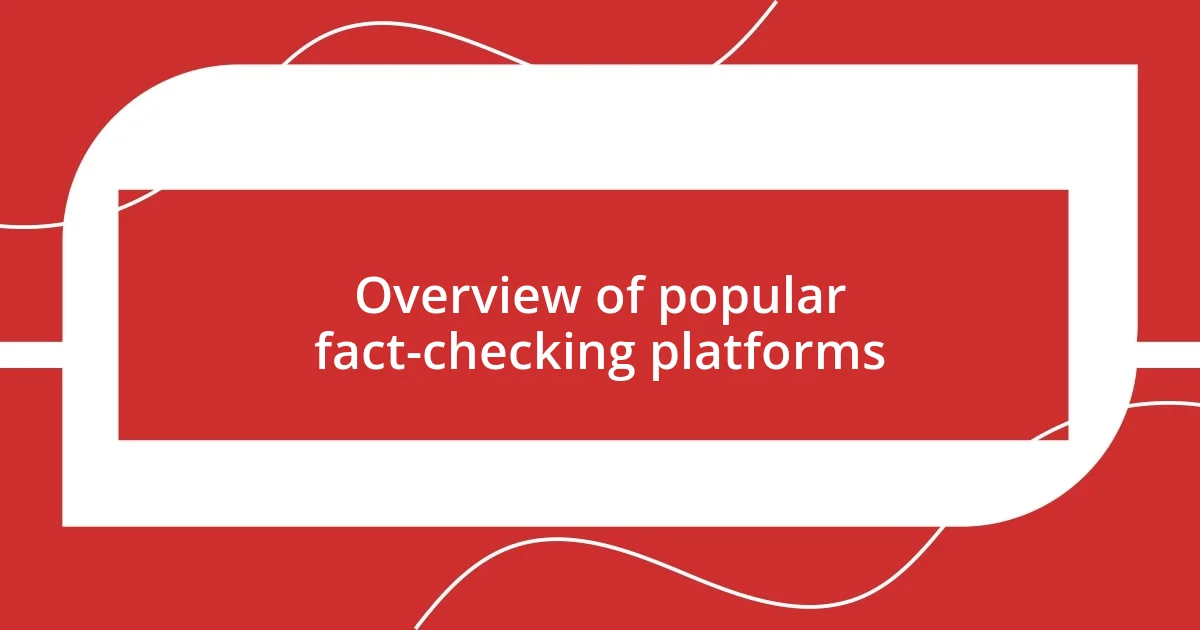
Overview of popular fact-checking platforms
Exploring the landscape of popular fact-checking platforms reveals a variety of resources that cater to different audience needs. I’ve personally found platforms like Snopes, FactCheck.org, and PolitiFact to be invaluable. Each one has its own style and specialties, making it interesting to see how they tackle misinformation in unique ways. It’s almost like visiting a library where each section is dedicated to a specific type of truth-telling.
Here’s a quick overview of some of the key players:
- Snopes: Renowned for debunking urban legends and viral hoaxes, Snopes takes a storytelling approach, making the facts accessible and engaging.
- FactCheck.org: Focuses primarily on political claims, detailing which statements are accurate and which are misleading. It’s a platform I rely on when navigating complex political discussions.
- PolitiFact: Known for its “Truth-O-Meter,” PolitiFact offers a transparent grading system for claims made by public figures, which I appreciate in promoting accountability.
- Poynter Institute: While not a fact-checking site per se, the Poynter Institute offers a wealth of resources and guidelines for effective fact-checking practices.
Whenever I think about how these platforms contribute to our understanding of the truth, I am reminded of a time when I questioned a claim made during a lively debate among friends. Instead of letting the conversation spiral into misconceptions, we pulled out our phones and fact-checked it on PolitiFact. The moment of revelation, when we discovered the claim was exaggerated, highlighted the power of these platforms to enhance our discussions. It’s not just about pinning down the facts; it’s about fostering informed conversations and building stronger connections among peers.
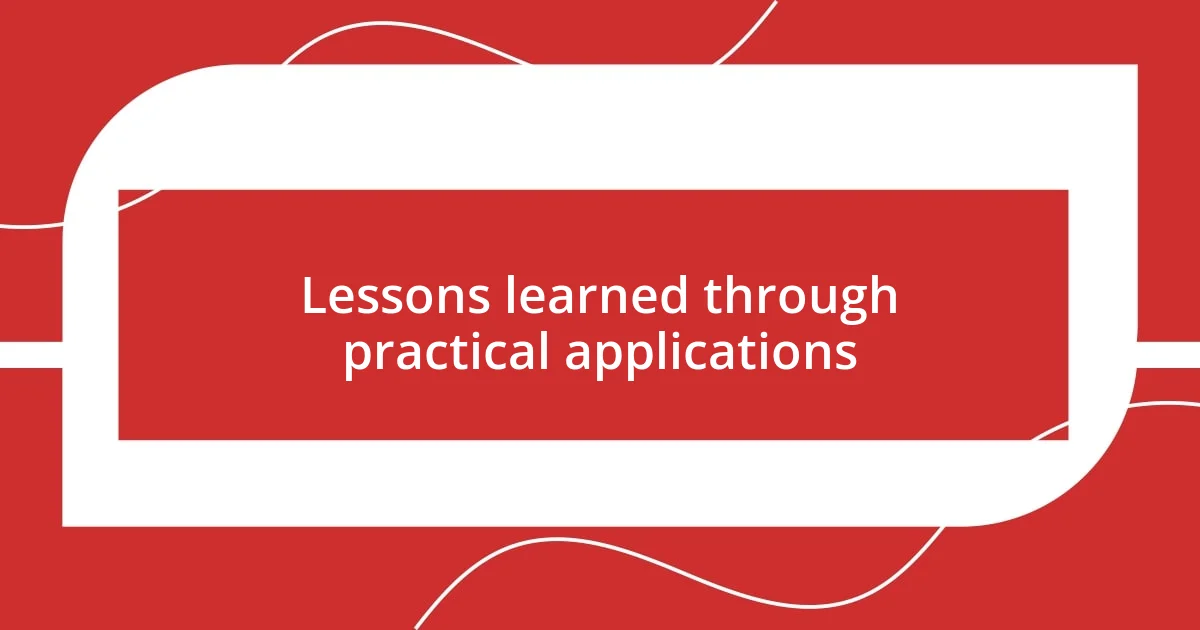
Lessons learned through practical applications
When I first started utilizing fact-checking platforms, I had a revelation: the difference between a mere statement and a well-supported fact is profound. I remember coming across a viral social media post that claimed a significant public figure made an outrageous statement. Initially, I felt compelled to share it, but something stopped me. I asked myself, “What if this isn’t accurate?” Taking the time to verify ultimately led me down a rabbit hole of information that not only clarified the truth but also deepened my understanding of the nuances behind the allegation.
Another lesson I’ve learned is the importance of context in fact-checking. During a particularly heated discussion about climate change, someone cited a statistic about temperature fluctuations without acknowledging the timeframe or specific conditions. When I fact-checked it later, I found that the data was correct but misleadingly presented. This experience taught me to always seek the larger narrative; without context, even verified facts can lead us astray. It made me think, how often do we accept data at face value without digging deeper?
Engaging with these platforms has changed how I approach news consumption overall. After experiencing the disorientation that comes from absorbing misinformation, I now feel empowered, almost like a detective on a mission. I recall an evening spent with friends, where we playfully fact-checked each other’s claims about trending topics. It transformed a simple gathering into an enlightening experience, reminding me that the journey of fact-checking isn’t just about finding answers—it’s about fostering critical thinking and meaningful dialogue among ourselves. Don’t you think that the more we engage with facts, the more enriched our conversations become?
